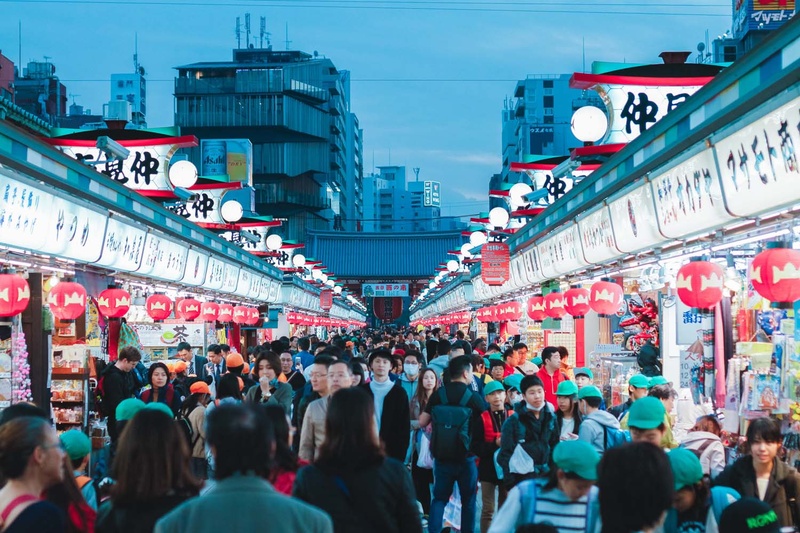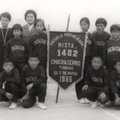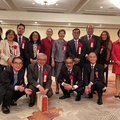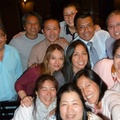I was pleased to learn that Chile had shut out Japan 4-0 in the most recent version of the America Cup soccer tournament. I hoped that Uruguay and Ecuador, their subsequent rivals, would beat Japan as well. I wanted Japan to leave South America with zero points. I was angry that the Japanese had shown a lack of respect for the America Cup by sending their B team, as if it wasn’t worth sending their best players. Of course, South America wasn’t worth the effort. Japan would never send its B team to the European Cup.
For many of us, soccer games between national teams help orient us in terms of identity and proximity to or distance from a certain country. Because I wanted Japan to be shut out, did that mean I felt more South American than Nikkei? I don’t know, but it led me to think about how one’s perception of Japan changes when you are Dekasegi.
In Japan, being Nikkei is not important, and the term has been replaced by another one that didn’t exist before in their vocabulary: Latino. You’re not simply Peruvian, but also Latino, a label that encompasses the Brazilians, Argentinians, Paraguayans, Dominicans, Bolivians, etc., who live there.
What was Japan for the Nikkei before becoming Dekasegi? I believe that the perspective of a Nisei was different from that of a Sansei. For the former, I imagine that it was the country whose image was forged by nostalgia and memories held by their Japanese parents; for the latter, it was, in that sense, the country of origin of many household customs, a certain way of behaving and viewing the world, a place where everything functioned perfectly, a sort of technological Eden.
In both cases, this was an idealized Japan, more imaginary than real. When you visit Japan, you discover that the country that many Nikkei have placed on a pedestal has both admirable characteristics as well as some ugly ones. The problem, however, wasn’t so much Japan (which country doesn’t have unpleasant things?), but how we had mythologized it.
I remember that one of the absurd things I believed when I was young was that stores never had sales in Japan. How could there be sales in a country where everyone has money and they buy products and services without concern for price? I asked myself naively.
After the Dekasegi experience, returning to live outside Japan, how does one perceive the country of one’s ancestors? I think many of us are grateful because Japan has given us the opportunity to work, to build new lives, to reinvent ourselves.
However, I do note a certain resentment toward a country that treated them like foreigners, as if their Japanese origins had no value (except in Okinawa).
In general, I believe there is a kind of detachment, an emotional distance, even among those who feel grateful. That’s because it all was, in the end, simply a transaction: one worked, the other paid them. It’s like this: “Thank you Japan, for the opportunity you gave me to work, but I worked for every yen you paid me.” Nothing was given for free. And that’s fine; there’s no reason for Japan to be a charity.
I ask myself if I feel affection for Japan. I don’t think so. I do know that I don’t feel any resentment or hostility. I was always treated well there, everyone was polite and friendly to me. In any case, if I have anyone to reproach it’s myself, for not trying to integrate into Japanese society or learn the language.
Being treated like a foreigner didn’t affect me because I never felt Japanese. What did happen to me — and I believe this happens to all Peruvian Nikkei — is that although being of Japanese descent was very important to me before I traveled to Japan, once there it was no longer the case. It became more important to be simply Peruvian or Latino.
FROM NIHON TO SIMPLY JAPAN
Now that I recall, I rooted for Japan when their soccer team played against Belgium in the World Cup in Russia, and I was sad when they lost. That means something, right? I also remember that a Nikkei friend who had never been to Japan rooted for the Japanese team, and that my brother, who lived for 14 or 15 years in Japan, rooted for Belgium.
The difference, I believe, is due to what I mentioned before: My friend was rooting for the mythical Japan, while my brother remembered the real Japan.
Reducing our feelings about a country to one word may seem unfair because it erases nuance and ignores complexity. However, if my brother had to express in one word his feelings toward Japan, the most accurate would be “indifference.”
That indifference is his response to the coldness he felt in Japan. He wasn’t mistreated there, but it was as if they put him in a freezer. And that can be worse than mistreatment, because coldness is like saying, you don’t matter to me, you don’t interest me, it’s almost as if you don’t exist.
On the other hand, if you mention Okinawa to him it’s like bringing up happiness, because there he was made to feel like just another Okinawan. He sees a marked difference between Okinawa and the rest of Japan. If there were an Okinawan soccer team playing against Peru, I wouldn’t be surprised if he rooted for the Okinawans.
Another friend who worked in Japan for less than two years had an even more difficult experience; he wasn’t there for long, but it was enough for him to become disillusioned. “Japan was disappointing in every sense. I thought that being Nikkei would help me to adapt, but I hit a wall. They treated me just like every other foreigner,” he says.
My friend also doesn’t agree with those who point out that Japan has offered Nikkei the opportunity to make money. “Every person earns that money with the sweat of their brow, with sacrifice, with sadness and the pain of having left behind children, a wife, a husband,” he says.
Now I realize that the change in the way that many ex-Dekasegi (the majority?) perceive Japan is also manifested in language. When we were children and teenagers, Japan was Nihon. We never said Japan. Our parents, aunts and uncles, and cousins also called it Nihon.
After living in Japan, we no longer call it Nihon. Japan is simply Japan, as everyone else calls it. The affection expressed by the original name has been lost. We have moved away from familiarity towards neutrality.
Before the Dekasegi phenomenon, although Japanese wasn’t spoken in many Nikkei homes, everyday words were commonly used (gohan, for example), and many Japanese customs were followed. It was almost like having a piece of Japan in your home. However, in Japan it was the reverse. Japan was outside, in the street, at work, but between the four walls of your house there was a little Peru: the food, the language, the customs, the music. Everything in reverse.
I also remember that in Japan we incorporated into our vocabulary a word that we had never used before: Ponja, a sort of popular slang term used in Peru to refer to Japanese people. I believe it was a way to establish a dividing line: us, the Latinos; them, the Ponjas.
Now, I do believe that beyond any feelings about Japan, positive or not, there is something that those of us who went there as young people, many of us not even 20 years old, agree on: Because we lived without the financial and emotional support of our parents, Japan taught us to survive, to succeed on our own, to deal with the real world. And to be punctual and throw garbage in the proper place, and never in the street. In that sense, Japan was a great school of life.
In a nutshell, it’s a complex issue. I, at least, am certain about a few things. I know that indifference is not the word I would use to describe my feelings about Japan (if I were indifferent I wouldn’t be writing this); nor do I feel hostility, as I mentioned. However, I also know that a term like affection wouldn’t fit. I believe that if Japan were a relative, it definitely wouldn’t be a sibling or a parent. Maybe it would be that cousin you played with as a child but who you now only see at funerals and weddings.
© 2019 Enrique Higa Sakuda






